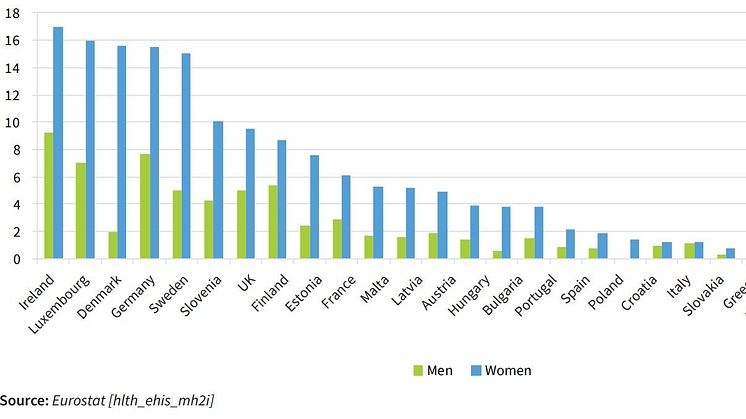
News -
Ireland has highest incidence of moderate to severe depressive symptoms among young women in EU
Eurofound’s latest report on Inequalities in the access of young people to information and support services uses both European Quality of Life Survey (EQLS) data, and existing data from national and European level to analyse the social and health situation of young people across the EU. It also applies new calculations and analysis to existing research to focus in on the situation of young people.
This graph, based on Eurostat data, shows that gender is an important factor in depression. In most Member States young women aged 15–24 were more likely to suffer from depressive symptoms than young men. The greatest gender gaps were in Denmark, Germany, Ireland and Sweden. Only in Cyprus, Greece and Lithuania were there higher percentages of young men with depressive symptoms. Ireland has the highest overall incidence of moderate to severe depressive symptoms among young people.
There are also indicators that young women are more likely to handle upsetting events internally – a factor linked to depression. These include higher rates of self-harm and eating disorders such as anorexia or bulimia among this group compared to young men.
The report also shows that young people’s risk of depression is strongly linked to socioeconomic status, highlighting that in 2016 young people living in households in the lowest income quartile were more likely to be at risk of depression than those in higher quartiles.
- Download the report: Inequalities in the access of young people to information and support services
- More information: European Quality of Life Survey 2016
- For further information on this story, please contact James Higgins.


